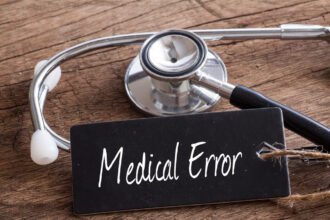In recognition of National Preparedness Month, a coalition of emergency planners and communications professionals from all 16 Baltimore City hospitals have joined together to advise individuals and families on how best to prepare for hazards that have happened or could happen.
Baltimore City maintains plans for responding to a variety of natural disasters, accidental emergencies and acts of terrorism. In such events, knowing what to do before, during and after an emergency is a critical part of being prepared.
In recognition of National Preparedness Month, a coalition of emergency planners and communications professionals from all 16 Baltimore City hospitals have joined together to advise individuals and families on how best to prepare for hazards that have happened or could happen.
Baltimore City maintains plans for responding to a variety of natural disasters, accidental emergencies and acts of terrorism. In such events, knowing what to do before, during and after an emergency is a critical part of being prepared.
“Personal preparedness initiatives can advance the ability for families and individuals to sustain themselves during a disaster as resources and assistance typically provided at the local level may be delayed or reduced,” said Beth Neilson, Emergency Preparedness Coordinator for Sinai Hospital of Baltimore.
National Preparedness Month is an opportunity to encourage individuals, families, businesses and communities to take action now and prepare for emergencies by following three important steps:

1. Be informed. It is important to know what to do before, during and after an emergency and the different types of hazards and how they can affect your household or your business. In Baltimore City, residents should plan for power outages, extreme heat/cold, tornadoes, fires, and hazardous materials incidents.
2. Make a plan. You and your family may not be together when a disaster strikes so it is important to plan in advance. Create a plan for getting everyone to a safe place, contacting one another and getting back together. Make arrangements for emergency boarding and care of any pets. To make a family emergency plan, visit www.ready.gov.
3. Build a kit. A basic emergency supply kit could include the following recommended items:
• Water, one gallon of water per person per day for at least three days, for drinking and sanitation
• Food, at least a three-day supply of non-perishable food
• Battery-powered or hand crank radio and a NOAA Weather Radio with tone alert and extra batteries for both
• Flashlight and extra batteries
• First aid kit
• Whistle to signal for help
• Dust mask to help filter contaminated air and plastic sheeting and duct tape to shelter-in-place
• Moist towelettes, garbage bags and plastic ties for personal sanitation
• Wrench or pliers to turn off utilities
• Manual can opener for food
• Local maps
• Cell phone with chargers, inverter or solar charger
Emergencies can range from inconvenience to devastation, but you can resolve not to be a victim of an emergency or disaster and take steps to minimize the impact on you, your family and your business. More information is available at www.Ready.gov (Spanish-language Website: www.Listo.gov). The website includes free information, checklists, and guidelines about how to be informed, develop a family emergency plan, build an emergency kit and get involved.
In the event of an emergency, LifeBridge Health will post information on the main web site (www.lifebridgehealth.org), and social media platforms to keep the community and others up to date. Public Information Officers will post appropriate and timely information as it becomes available for patients, visitors, the community and employees. Click on the links below to access these sites for updates:






